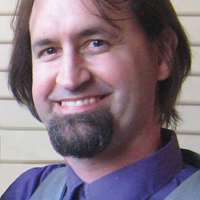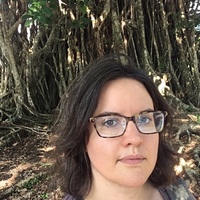
Hanne Loeland Levinson
University of Minnesota - Twin Cities, Gender, Women, and Sexuality Studies, Affiliated Faculty Member
I am an Associate Professor in the Department of Classical and Near Eastern Religions and Cultures at the University of Minnesota, a position I have held since August 2013. I am also a member of the Center for Jewish Studies, Religious Studies, and affiliated faculty at the department for Gender, Women, and Sexuality Studies at the University of Minnesota. Previously, I was Associate Professor of Old Testament Studies at the Norwegian School of Theology, Religion, and Society in Oslo (Norway) from 2007–2013, where I also received my doctoral degree.
Within the academic study of the Hebrew Bible, I specialize in gender studies, metaphor theory, death studies, and biblical narratives.
My first book, Silent or Salient Gender? The Interpretation of Gendered God-Language in the Hebrew Bible, Exemplified in Isaiah 42, 46 and 49 (Mohr Siebeck, 2008), received the John Templeton Award for Theological Promise in 2008.
My newest book The Death Wish in the Hebrew Bible: Rhetorical Strategies for Survival (Cambridge University Press, 2021). This is the first monograph to systematically investigate the texts in the Hebrew Bible in which a character expresses a wish to die. Contrary to previous scholarship on these texts that assumed these death wishes were simply a desire to escape suffering, I employ narrative criticism and conversation analysis, together with diachronic methods, to carefully hear each death-wish text in its literary context. I demonstrate that death wishes embody powerful, multi-faceted rhetorical strategies. Grouping the death-wish texts into four main rhetorical strategies of negotiation, expression of despair and anger, longing to undo one’s existence, and wishing for a different reality, I portray the complex reasons why characters in the Hebrew Bible wish for death. I conclude that the death wishes navigate the tension between longing for death and fighting for survival —a tension that many live with also today as they attempt to claim agency and autonomy in life.
In 2012/13 I spent a year in Jerusalem as a visiting scholar in the Bible Department at Hebrew University and at the Swedish Theological Institute. I have also been a visiting scholar at Stellenbosch University (South Africa), Duke University, and Luther Theological Seminary in St Paul. As a student, I spent time at the University of Göttingen (Germany), Hebrew University (Jerusalem), and the University of Chicago.
Phone: 612-624-8341
Address: University of Minnesota
245 Nicholson
216 Pillsbury Dr. SE
Minneapolis, MN 55455-0229
Within the academic study of the Hebrew Bible, I specialize in gender studies, metaphor theory, death studies, and biblical narratives.
My first book, Silent or Salient Gender? The Interpretation of Gendered God-Language in the Hebrew Bible, Exemplified in Isaiah 42, 46 and 49 (Mohr Siebeck, 2008), received the John Templeton Award for Theological Promise in 2008.
My newest book The Death Wish in the Hebrew Bible: Rhetorical Strategies for Survival (Cambridge University Press, 2021). This is the first monograph to systematically investigate the texts in the Hebrew Bible in which a character expresses a wish to die. Contrary to previous scholarship on these texts that assumed these death wishes were simply a desire to escape suffering, I employ narrative criticism and conversation analysis, together with diachronic methods, to carefully hear each death-wish text in its literary context. I demonstrate that death wishes embody powerful, multi-faceted rhetorical strategies. Grouping the death-wish texts into four main rhetorical strategies of negotiation, expression of despair and anger, longing to undo one’s existence, and wishing for a different reality, I portray the complex reasons why characters in the Hebrew Bible wish for death. I conclude that the death wishes navigate the tension between longing for death and fighting for survival —a tension that many live with also today as they attempt to claim agency and autonomy in life.
In 2012/13 I spent a year in Jerusalem as a visiting scholar in the Bible Department at Hebrew University and at the Swedish Theological Institute. I have also been a visiting scholar at Stellenbosch University (South Africa), Duke University, and Luther Theological Seminary in St Paul. As a student, I spent time at the University of Göttingen (Germany), Hebrew University (Jerusalem), and the University of Chicago.
Phone: 612-624-8341
Address: University of Minnesota
245 Nicholson
216 Pillsbury Dr. SE
Minneapolis, MN 55455-0229
less
Related Authors
Johannes Zachhuber
University of Oxford
Seth Sanders
University of California, Davis
Ian Young
Australian Catholic University
Michael Spivey
University of California, Merced
Bernard M Levinson
University of Minnesota
Andrea Peto
Central European University
Scott R. Stroud
The University of Texas at Austin
Gerard Steen
University of Amsterdam
Piotr Popiolek
Pontifical University of John Paul II
Rachel E Smith
University of Aberdeen
InterestsView All (31)









Uploads
Books by Hanne Loeland Levinson
This volume was recognized with the John Templeton Award for Theological Promise in 2008.
Papers by Hanne Loeland Levinson
Edited by Irmtraud Fischer and Juliana Claassens. Pages 322–335
Stuttgart: Kohlhammer, 2019.
- See more at: www.leket.org/en/parashat-vayera/
of Samaria” in John 4. It also investigates the metaphor “God the
father”. “Father” or πατερ is a more prominent metaphor for God
in John than in any other of the New Testament’s writings and it
occurs three times in John 4:21–24. The Samaritan woman challenges Jesus with the controversial question of where to worship. This issue was a standing conflict between “the Jews” and “the Samaritans”. In this conflict, Jesus sides with “the Jews” before he brings the discussion further from where to worship till the question of how to worship. Today another controversial question can be raised when reading John 4:21–24 (or the gospel of John and the Bible in general), namely, whether to worship God as “the father”. “God the father” is a metaphor explicitly marked for male gender because male gender is part of the metaphor’s source domain. Because of the associations to male gender “God the father” has been frequently questioned in feminist research. In this article it will be argued that to be able to maintain the understanding that “God the father” does not literally mean that God is a father, we need to speak of God in a multitude of metaphors and images.
Talks by Hanne Loeland Levinson
The Hebrew Bible and the Jewish tradition strongly argue that God should not be depicted in any form. At the same time, the Hebrew Bible is full of images for God. God is father, mother and leopard, among others. The Hebrew Bible also draws on many diverse and challenging metaphors for God. Hanne Løland Levinson explores the diverse “god-language” of the Hebrew Bible and reflects on the connection between language for God and concepts of God.
While contemporary voices often urge us to “suffer in silence” or “take everything as it comes from God” the Hebrew Bible (Old Testament) shows us a very different response to suffering and tragedies. “Why is my pain unceasing, my wound incurable? Jeremiah asks God. “Give me children, or I shall die!” Rachel demands of Jacob; and Elijah addresses God, saying. “It is enough; now, take away my life.” In the Goodman lecture this year, Professor Hanne Loeland Levinson will introduce us to the many voices of suffering, protest, and lament in the Hebrew Bible. We will look into stories of suffering and pain, stories where the characters protest their situation both to their kin and to God, sometimes they even bargain with their lives to change their situation. We will also explore the psalms of lament and the book of Lamentations where sufferers pour out their misery to God.
This volume was recognized with the John Templeton Award for Theological Promise in 2008.
Edited by Irmtraud Fischer and Juliana Claassens. Pages 322–335
Stuttgart: Kohlhammer, 2019.
- See more at: www.leket.org/en/parashat-vayera/
of Samaria” in John 4. It also investigates the metaphor “God the
father”. “Father” or πατερ is a more prominent metaphor for God
in John than in any other of the New Testament’s writings and it
occurs three times in John 4:21–24. The Samaritan woman challenges Jesus with the controversial question of where to worship. This issue was a standing conflict between “the Jews” and “the Samaritans”. In this conflict, Jesus sides with “the Jews” before he brings the discussion further from where to worship till the question of how to worship. Today another controversial question can be raised when reading John 4:21–24 (or the gospel of John and the Bible in general), namely, whether to worship God as “the father”. “God the father” is a metaphor explicitly marked for male gender because male gender is part of the metaphor’s source domain. Because of the associations to male gender “God the father” has been frequently questioned in feminist research. In this article it will be argued that to be able to maintain the understanding that “God the father” does not literally mean that God is a father, we need to speak of God in a multitude of metaphors and images.
The Hebrew Bible and the Jewish tradition strongly argue that God should not be depicted in any form. At the same time, the Hebrew Bible is full of images for God. God is father, mother and leopard, among others. The Hebrew Bible also draws on many diverse and challenging metaphors for God. Hanne Løland Levinson explores the diverse “god-language” of the Hebrew Bible and reflects on the connection between language for God and concepts of God.
While contemporary voices often urge us to “suffer in silence” or “take everything as it comes from God” the Hebrew Bible (Old Testament) shows us a very different response to suffering and tragedies. “Why is my pain unceasing, my wound incurable? Jeremiah asks God. “Give me children, or I shall die!” Rachel demands of Jacob; and Elijah addresses God, saying. “It is enough; now, take away my life.” In the Goodman lecture this year, Professor Hanne Loeland Levinson will introduce us to the many voices of suffering, protest, and lament in the Hebrew Bible. We will look into stories of suffering and pain, stories where the characters protest their situation both to their kin and to God, sometimes they even bargain with their lives to change their situation. We will also explore the psalms of lament and the book of Lamentations where sufferers pour out their misery to God.